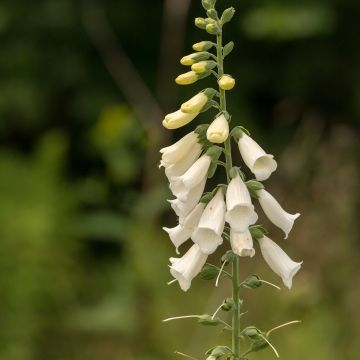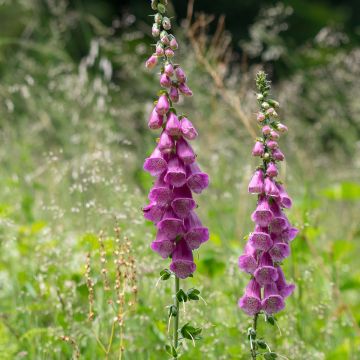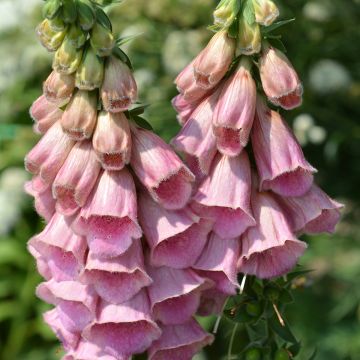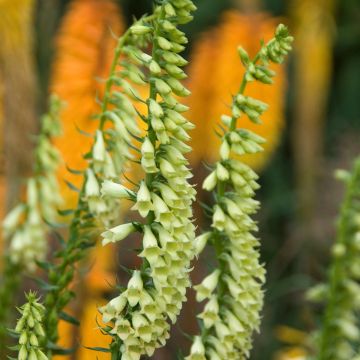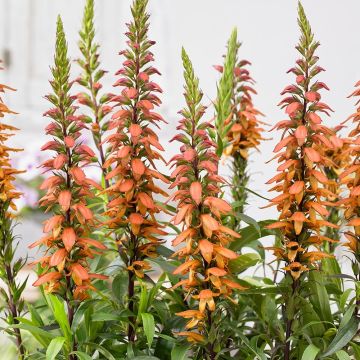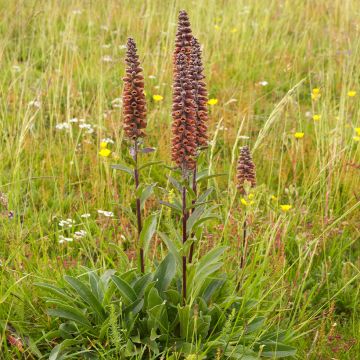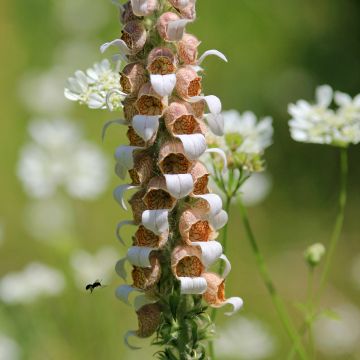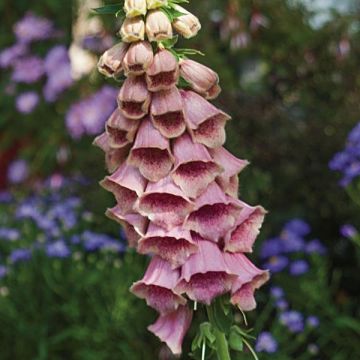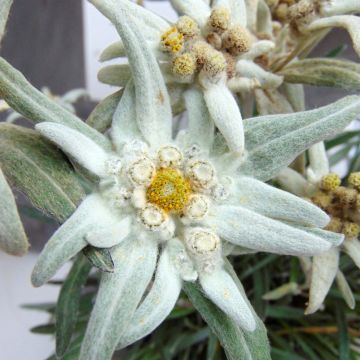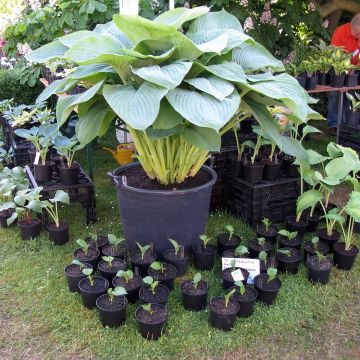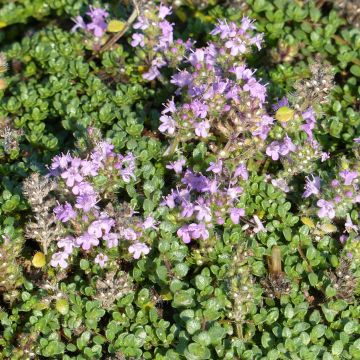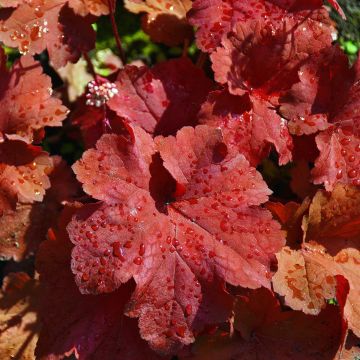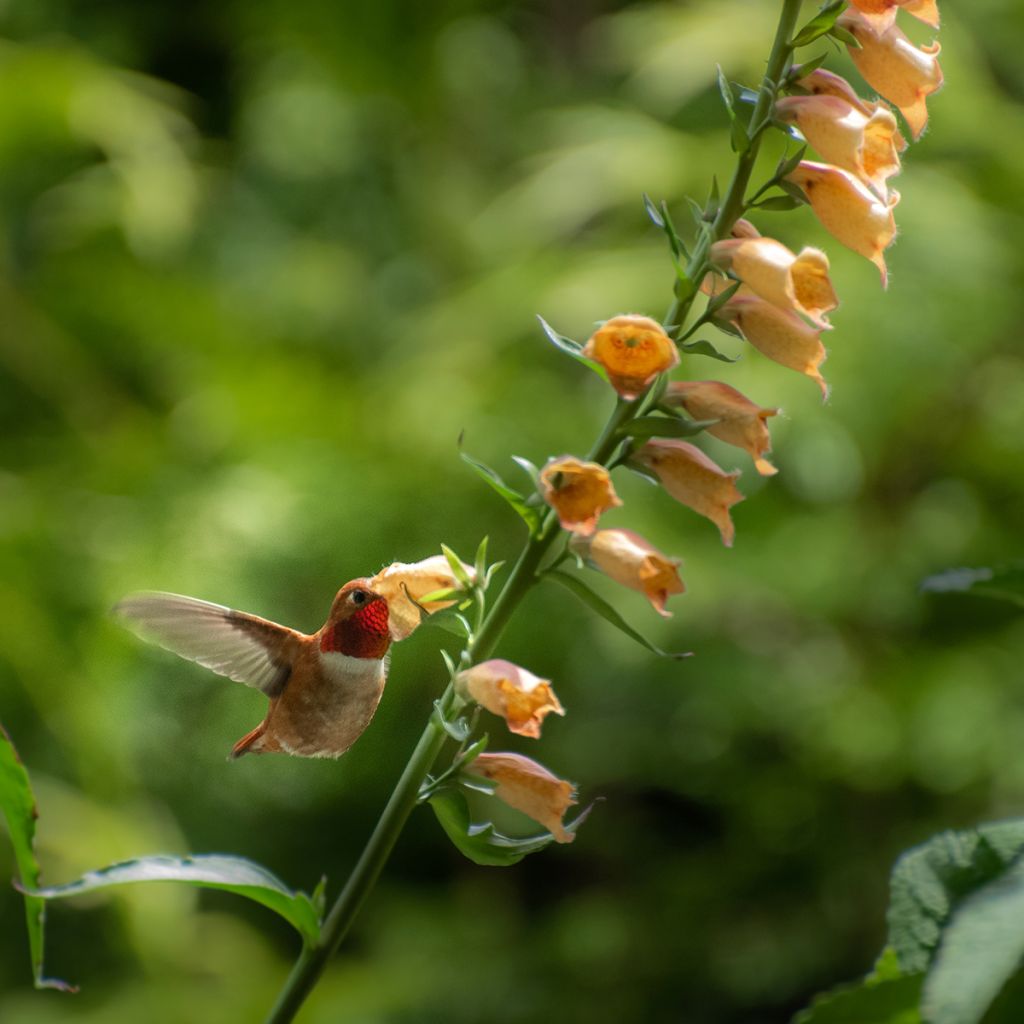

Digitalis Goldcrest - Foxglove
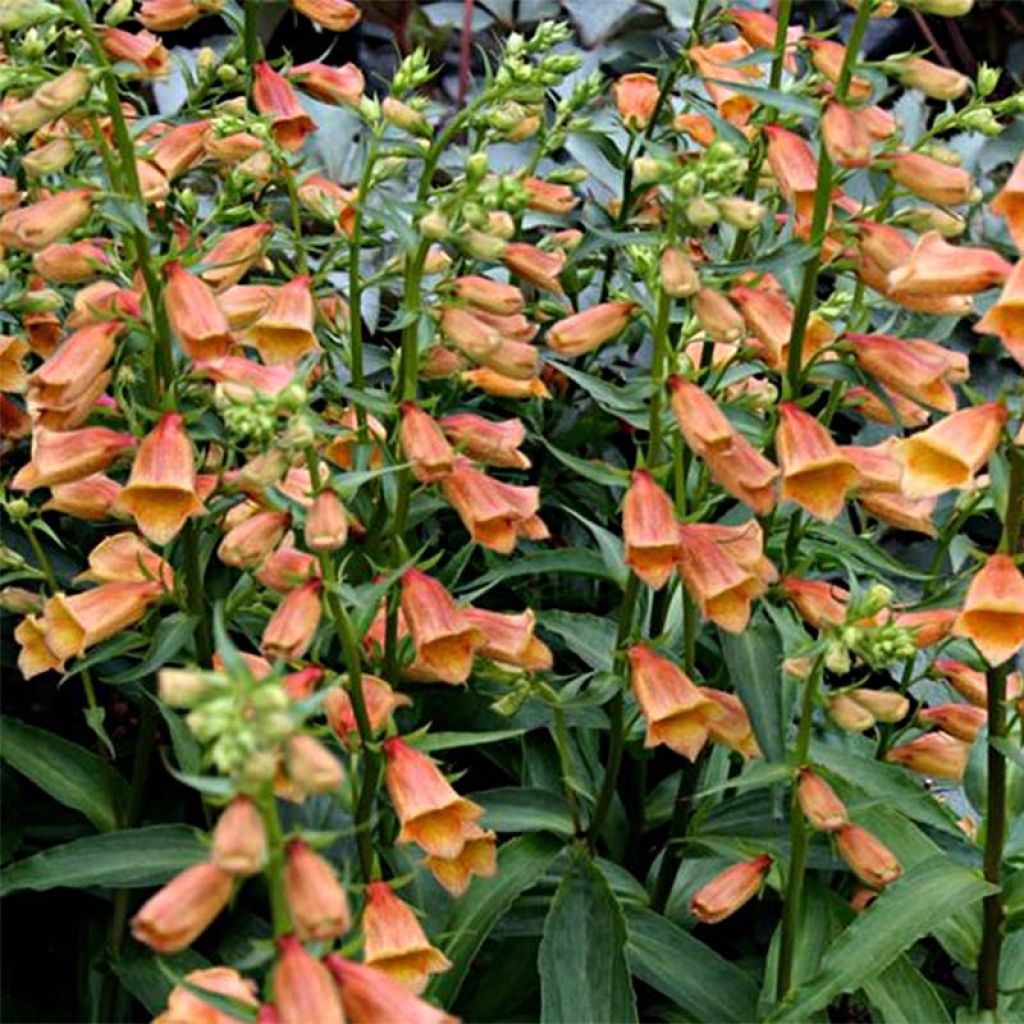

Digitalis Goldcrest - Foxglove
View more pictures
Hide images
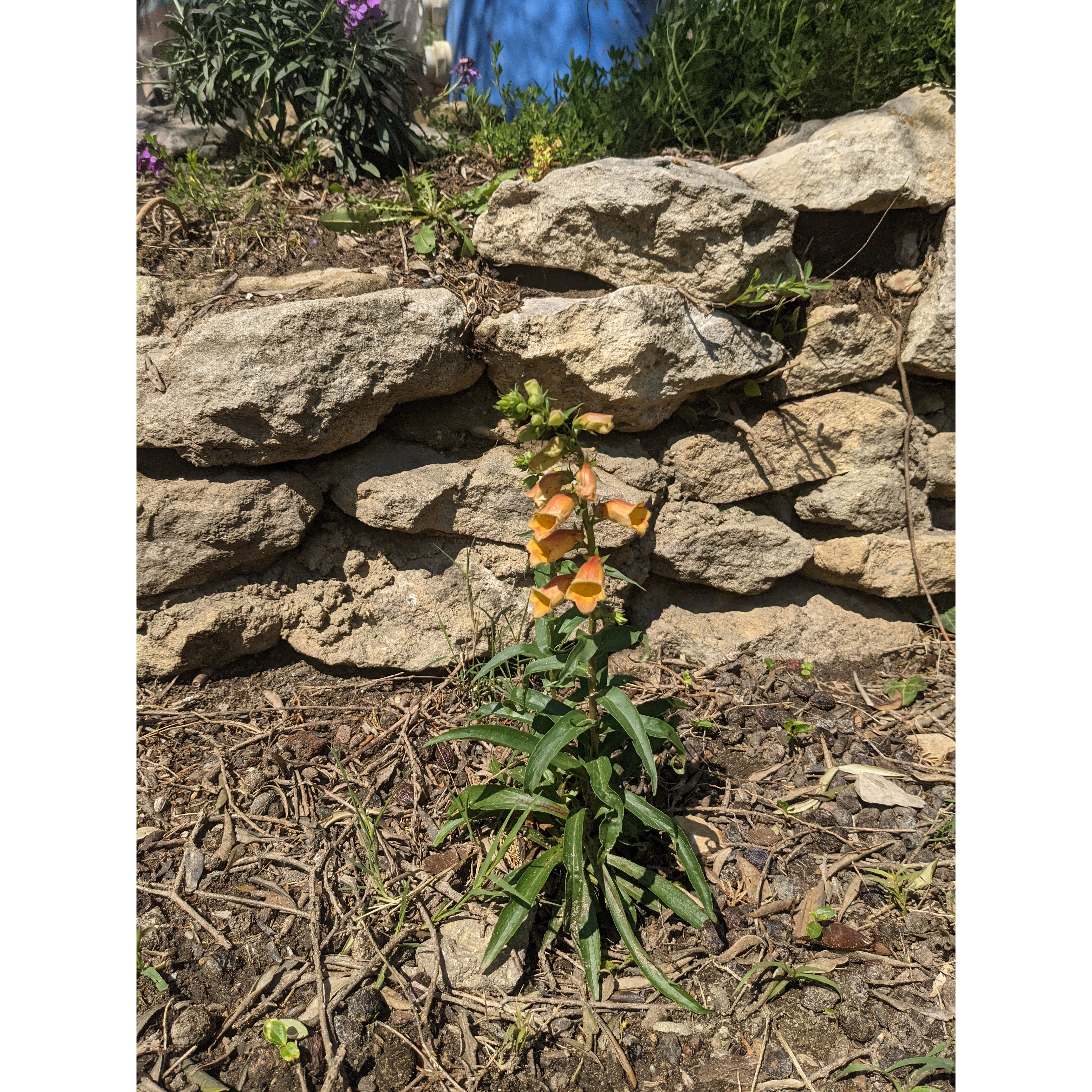
Perle R.

I'm sorry, but there is no text in the customer review to be translated. If you have any other reviews or text that needs translation, please provide it, and I'll be happy to help.
Perle R. • 30 FR
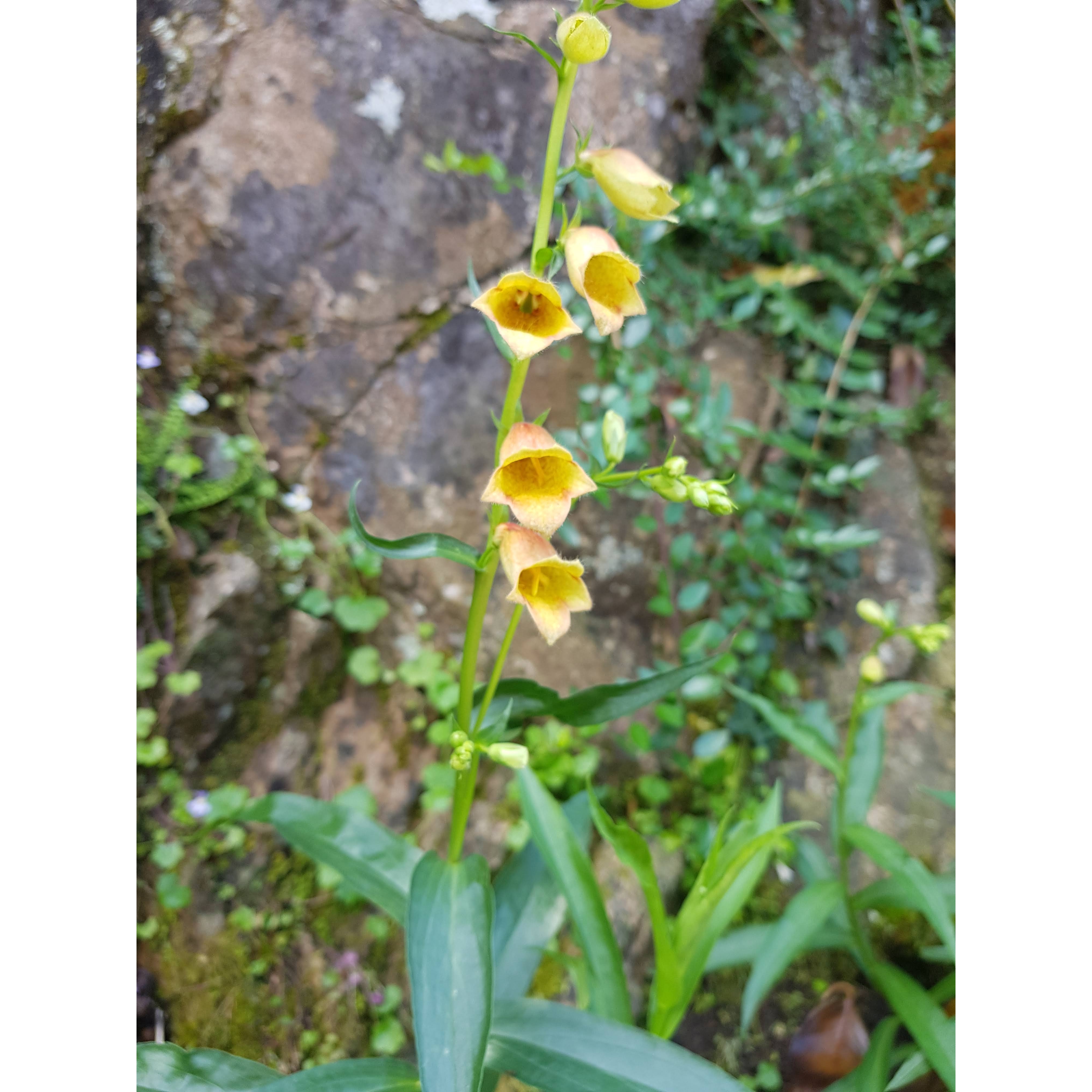
Philou L.

Digitalis hybrid Goldcrest
Philou L. • 39 FR
Digitalis Goldcrest - Foxglove
Digitalis obscura x grandiflora Goldcrest®
Willow-leaved Foxglove, Sunset Foxglove
The plant arrived damaged (due to the carrier who mishandled the package) and had started to rot, unfortunately it did not survive. However, I still give 5 stars to the customer service which is very responsive and refunds quickly when there is an issue. I have always received quick and very kind responses from the customer service, you can order with confidence :)
Chloé, 31/03/2024
Special offer!
Receive a €20 voucher for any order over €90 (excluding delivery costs, credit notes, and plastic-free options)!
1- Add your favorite plants to your cart.
2- Once you have reached €90, confirm your order (you can even choose the delivery date!).
3- As soon as your order is shipped, you will receive an email containing your voucher code, valid for 3 months (90 days).
Your voucher is unique and can only be used once, for any order with a minimum value of €20, excluding delivery costs.
Can be combined with other current offers, non-divisible and non-refundable.
Home or relay delivery (depending on size and destination)
Schedule delivery date,
and select date in basket
This plant carries a 12 months recovery warranty
More information
We guarantee the quality of our plants for a full growing cycle, and will replace at our expense any plant that fails to recover under normal climatic and planting conditions.
Would this plant suit my garden?
Set up your Plantfit profile →
Description
Digitalis 'Goldcrest' is a very recent hybrid foxglove, distinguished by its compact habit and the length of its flowering period. This sterile variety, which does not exhaust itself by producing seeds, blooms for weeks. It flowers from mid-summer to autumn, with spikes of flowers ranging from yellow to apricot and coppery pink, with a yellow throat speckled with pale brown-red. The result of a cross-breeding between a Mediterranean and a Slavic plant, this foxglove is a robust, undemanding, and hardy plant that should be able to adapt to various situations.
Digitalis Goldcrest 'Waldigone'' is a recently obtained hybrid cultivar in England. It is the result of a cross between Digitalis obscura, a Mediterranean plant with yellow flowers tinged with rust or sometimes pink, and D. grandiflora, native to Eastern Europe, with large yellow flowers. Its first parent passed on its foliage, compact habit, good tolerance to sun and poor soils, a coppery flowering, and the second parent contributed large and open flowers, as well as excellent hardiness. Foxgloves belong to the Plantaginaceae family, formerly known as Scrophulariaceae.
The 'Goldcrest' variety is a perennial, evergreen plant that grows in clumps 30 to 50 cm (12 to 20in) in diameter. The plant consists of herbaceous stems with long and slender glabrous leaves, which are a shiny dark green colour. Several slightly leafy flower stems arise from the foliage clump. These stems elongate in late spring and early summer, reaching a height of 45 to 50 cm (18 to 20in). Numerous widely open tubular flowers appear on these very sturdy stems from July until October. Each flower is adorned with a soft yellow-apricot colour washed with pink and copper on the outside, and reveals a brighter yellow throat dipping into a reddish-brown centre, punctuated with brown spots. This variety produces young rosettes at the base of the mother plant, which can be easily divided for propagation.
The 'Goldcrest' foxglove is an excellent perennial for woodland edges, sunny borders and beds, or cottage gardens. It fits wonderfully well in a natural-inspired setting. Plant it in full sun or partial shade, in ordinary but well-drained garden soil. Its modest size and long flowering period make it an excellent choice for containers and flower pots. Its bell-shaped flowers have a rather soft colour, which some may find a bit dull, but in return, it is easier to pair with other flowers and shrubs in the garden. Pair it, for example, with perennial geraniums, toadflaxes, evening primroses, red hot pokers, asters, centaureas, baptisias, Agastaches from the Kudos series, or fennels for foliage contrast. Also, enjoy its charm indoors by making lovely bouquets.
Report an error about the product description
Digitalis Goldcrest - Foxglove in pictures
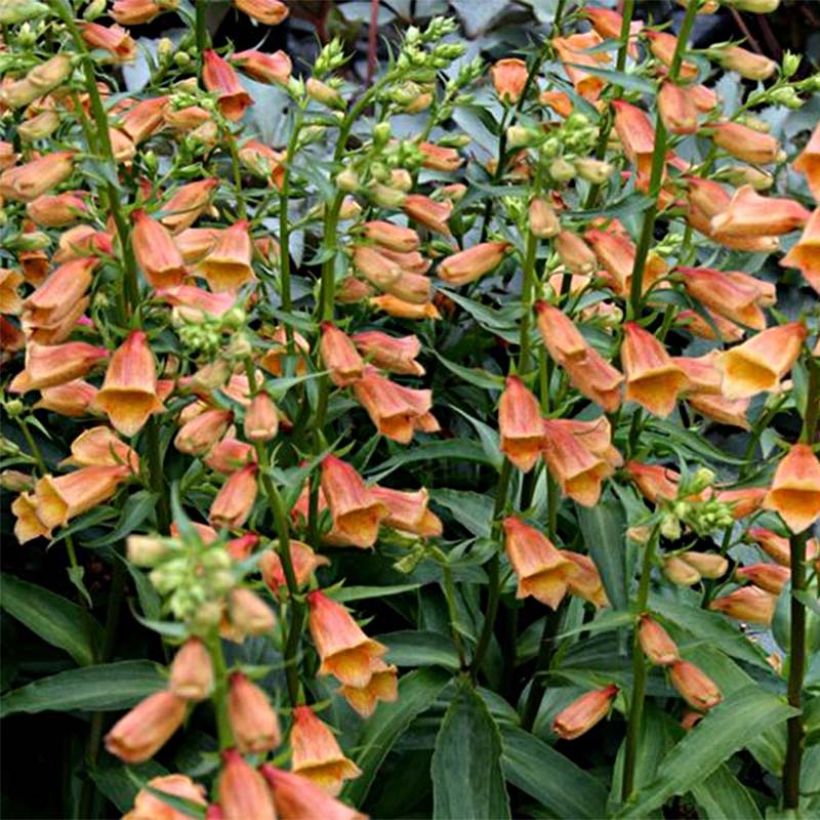

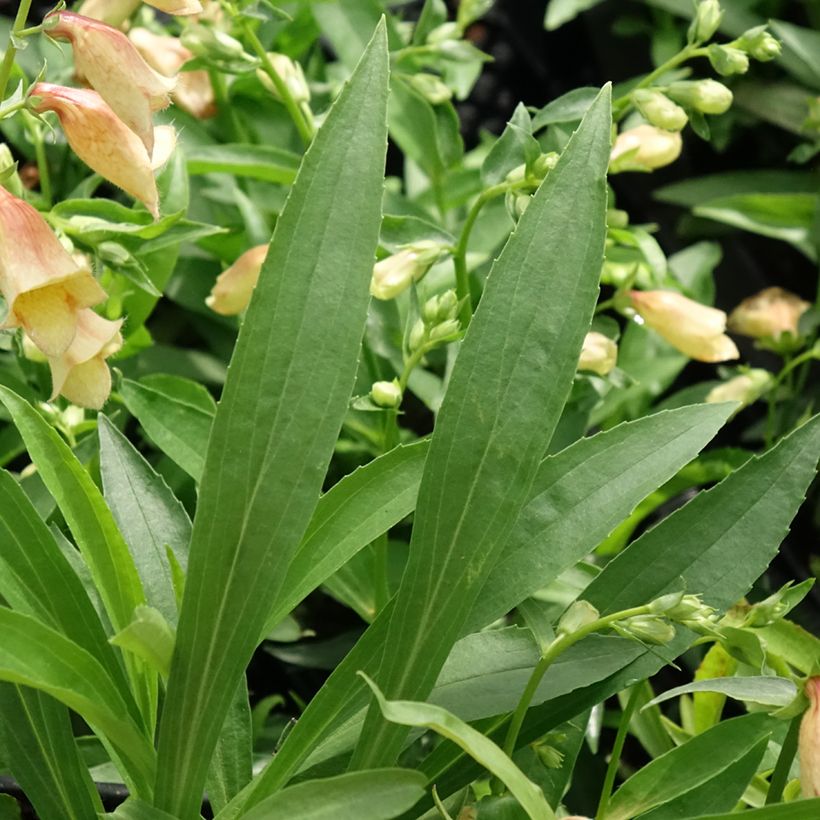

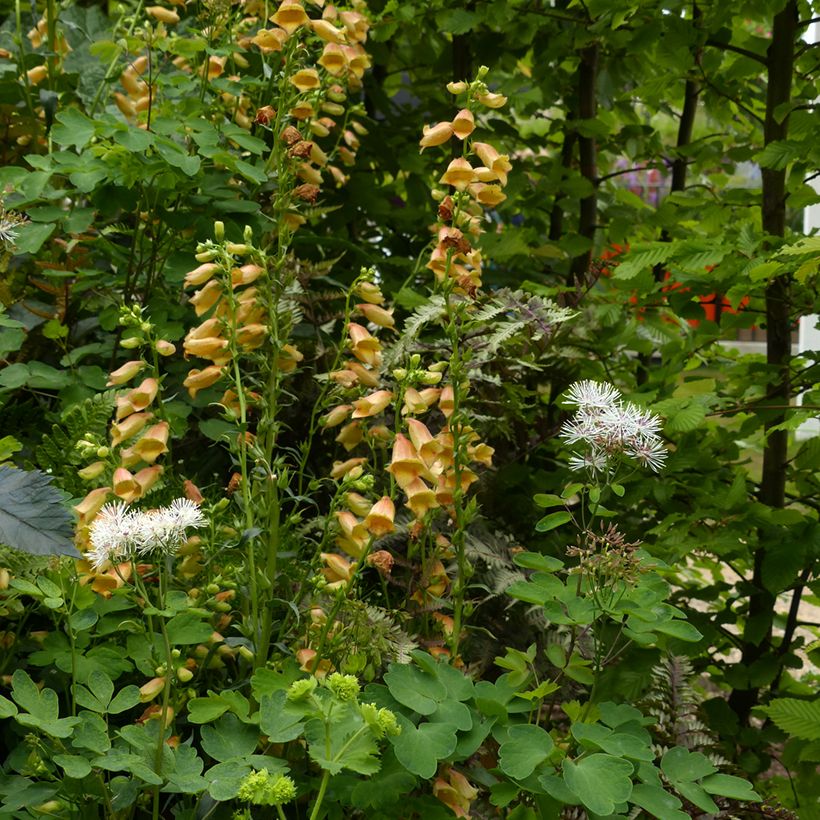

Flowering
Foliage
Plant habit
Safety measures
Botanical data
Digitalis
obscura x grandiflora
Goldcrest®
Scrophulariaceae
Willow-leaved Foxglove, Sunset Foxglove
Cultivar or hybrid
ingestion
Cette plante est toxique si elle est ingérée volontairement ou involontairement.
Ne la plantez pas là où de jeunes enfants peuvent évoluer, et lavez-vous les mains après l'avoir manipulée.
Pensez à conserver l'étiquette de la plante, à la photographier ou à noter son nom, afin de faciliter le travail des professionnels de santé.
Davantage d'informations sur https://plantes-risque.info
Other Digitalis - Foxglove
View all →Planting and care
The 'Goldcrest' foxglove can be planted in spring or autumn. It is undemanding in terms of soil: a good garden soil that is not too chalky, properly drained and enriched with compost will do the trick. Choose a sunny or semi-shaded exposure, with partial shade being preferable in hot climates. It tolerates dry soils better than the purple foxgloves of our cool woodlands. The mountains and their rocky soils are also well suited to this plant. It is a very hardy plant that can withstand temperatures below -15°C. The hybrid variety 'Goldcrest' does not produce seeds and remains truly perennial for several years. Remove faded flower spikes to encourage the formation of new inflorescences during the summer. The plant can easily be propagated by dividing the daughter rosettes that develop on the periphery of the mother plant.
The enemies of foxgloves are mainly gastropods that enjoy their young shoots. Make sure to protect them from them.
Foxgloves are toxic plants if ingested.
Planting period
Intended location
Care
-
, onOrder confirmed
Reply from on Promesse de fleurs
Similar products
Haven't found what you were looking for?
Hardiness is the lowest winter temperature a plant can endure without suffering serious damage or even dying. However, hardiness is affected by location (a sheltered area, such as a patio), protection (winter cover) and soil type (hardiness is improved by well-drained soil).

Photo Sharing Terms & Conditions
In order to encourage gardeners to interact and share their experiences, Promesse de fleurs offers various media enabling content to be uploaded onto its Site - in particular via the ‘Photo sharing’ module.
The User agrees to refrain from:
- Posting any content that is illegal, prejudicial, insulting, racist, inciteful to hatred, revisionist, contrary to public decency, that infringes on privacy or on the privacy rights of third parties, in particular the publicity rights of persons and goods, intellectual property rights, or the right to privacy.
- Submitting content on behalf of a third party;
- Impersonate the identity of a third party and/or publish any personal information about a third party;
In general, the User undertakes to refrain from any unethical behaviour.
All Content (in particular text, comments, files, images, photos, videos, creative works, etc.), which may be subject to property or intellectual property rights, image or other private rights, shall remain the property of the User, subject to the limited rights granted by the terms of the licence granted by Promesse de fleurs as stated below. Users are at liberty to publish or not to publish such Content on the Site, notably via the ‘Photo Sharing’ facility, and accept that this Content shall be made public and freely accessible, notably on the Internet.
Users further acknowledge, undertake to have ,and guarantee that they hold all necessary rights and permissions to publish such material on the Site, in particular with regard to the legislation in force pertaining to any privacy, property, intellectual property, image, or contractual rights, or rights of any other nature. By publishing such Content on the Site, Users acknowledge accepting full liability as publishers of the Content within the meaning of the law, and grant Promesse de fleurs, free of charge, an inclusive, worldwide licence for the said Content for the entire duration of its publication, including all reproduction, representation, up/downloading, displaying, performing, transmission, and storage rights.
Users also grant permission for their name to be linked to the Content and accept that this link may not always be made available.
By engaging in posting material, Users consent to their Content becoming automatically accessible on the Internet, in particular on other sites and/or blogs and/or web pages of the Promesse de fleurs site, including in particular social pages and the Promesse de fleurs catalogue.
Users may secure the removal of entrusted content free of charge by issuing a simple request via our contact form.
The flowering period indicated on our website applies to countries and regions located in USDA zone 8 (France, the United Kingdom, Ireland, the Netherlands, etc.)
It will vary according to where you live:
- In zones 9 to 10 (Italy, Spain, Greece, etc.), flowering will occur about 2 to 4 weeks earlier.
- In zones 6 to 7 (Germany, Poland, Slovenia, and lower mountainous regions), flowering will be delayed by 2 to 3 weeks.
- In zone 5 (Central Europe, Scandinavia), blooming will be delayed by 3 to 5 weeks.
In temperate climates, pruning of spring-flowering shrubs (forsythia, spireas, etc.) should be done just after flowering.
Pruning of summer-flowering shrubs (Indian Lilac, Perovskia, etc.) can be done in winter or spring.
In cold regions as well as with frost-sensitive plants, avoid pruning too early when severe frosts may still occur.
The planting period indicated on our website applies to countries and regions located in USDA zone 8 (France, United Kingdom, Ireland, Netherlands).
It will vary according to where you live:
- In Mediterranean zones (Marseille, Madrid, Milan, etc.), autumn and winter are the best planting periods.
- In continental zones (Strasbourg, Munich, Vienna, etc.), delay planting by 2 to 3 weeks in spring and bring it forward by 2 to 4 weeks in autumn.
- In mountainous regions (the Alps, Pyrenees, Carpathians, etc.), it is best to plant in late spring (May-June) or late summer (August-September).
The harvesting period indicated on our website applies to countries and regions in USDA zone 8 (France, England, Ireland, the Netherlands).
In colder areas (Scandinavia, Poland, Austria...) fruit and vegetable harvests are likely to be delayed by 3-4 weeks.
In warmer areas (Italy, Spain, Greece, etc.), harvesting will probably take place earlier, depending on weather conditions.
The sowing periods indicated on our website apply to countries and regions within USDA Zone 8 (France, UK, Ireland, Netherlands).
In colder areas (Scandinavia, Poland, Austria...), delay any outdoor sowing by 3-4 weeks, or sow under glass.
In warmer climes (Italy, Spain, Greece, etc.), bring outdoor sowing forward by a few weeks.






























